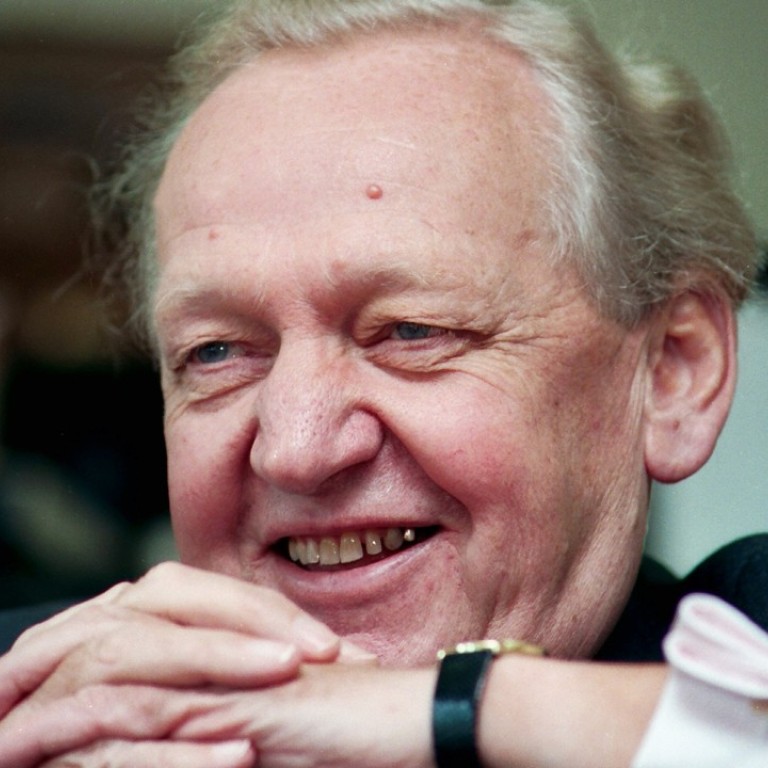
‘Progressive on democracy’ but ‘colonial and aloof’: officials, lawmakers reflect on life of Hong Kong’s last British chief secretary
David Ford, who died on Saturday night aged 82, led the city’s civil service between 1986 and 1993
Top Hong Kong officials past and present have paid tribute to David Ford, the last Briton to lead the civil service in the final decade of colonial rule, recalling how he helped navigate Hong Kong through a string of crises as the clock wound down to 1997.
Ford, who died on Saturday night aged 82, was Hong Kong’s chief secretary between 1986 and 1993, the last in a long line of foreigners holding the position during more than a century of expatriate domination of the government hierarchy. He was succeeded by Anson Chan Fang On-sang.
Ford’s time in the top echelons of the administration came in a period when Hongkongers were increasingly unnerved about the coming handover of sovereignty to China following the Tiananmen Square crackdown on democracy protesters in Beijing in 1989.
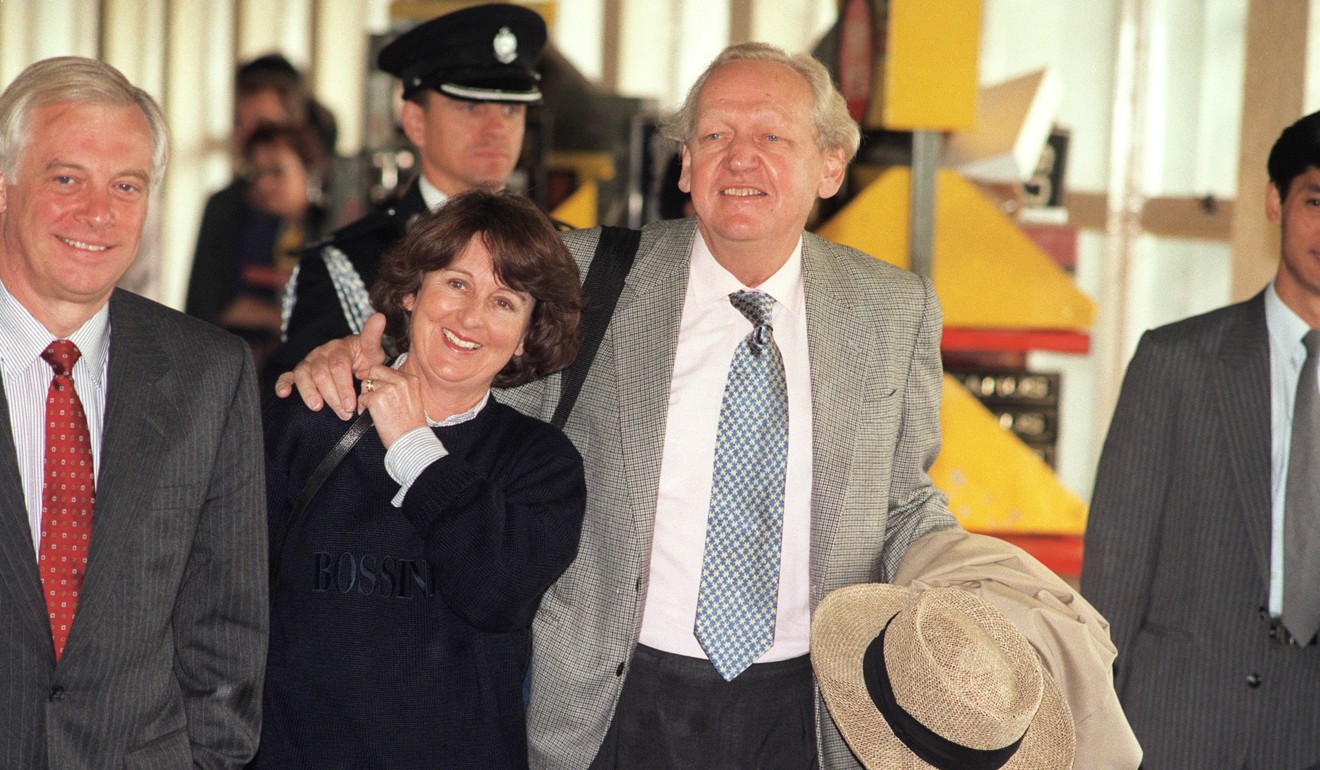
The response to the bloodshed by the colonial government was to put itself at odds with Beijing, rolling out two measures that proved sticking points with officials to the north – the construction of a costly new airport at Chek Lap Kok on Lantau Island, and democratisation of the city’s legislature, which at that time functioned more like an extension of the executive branch of government.
David Ford, the last British chief secretary in Hong Kong, dies aged 82
“After the events of Tiananmen Square there was a strong feeling we needed to have a more representative, independent Legislative Council,” Ford told the Post in 1993. “There has been ... a reluctance by the Chinese to see that natural development.”
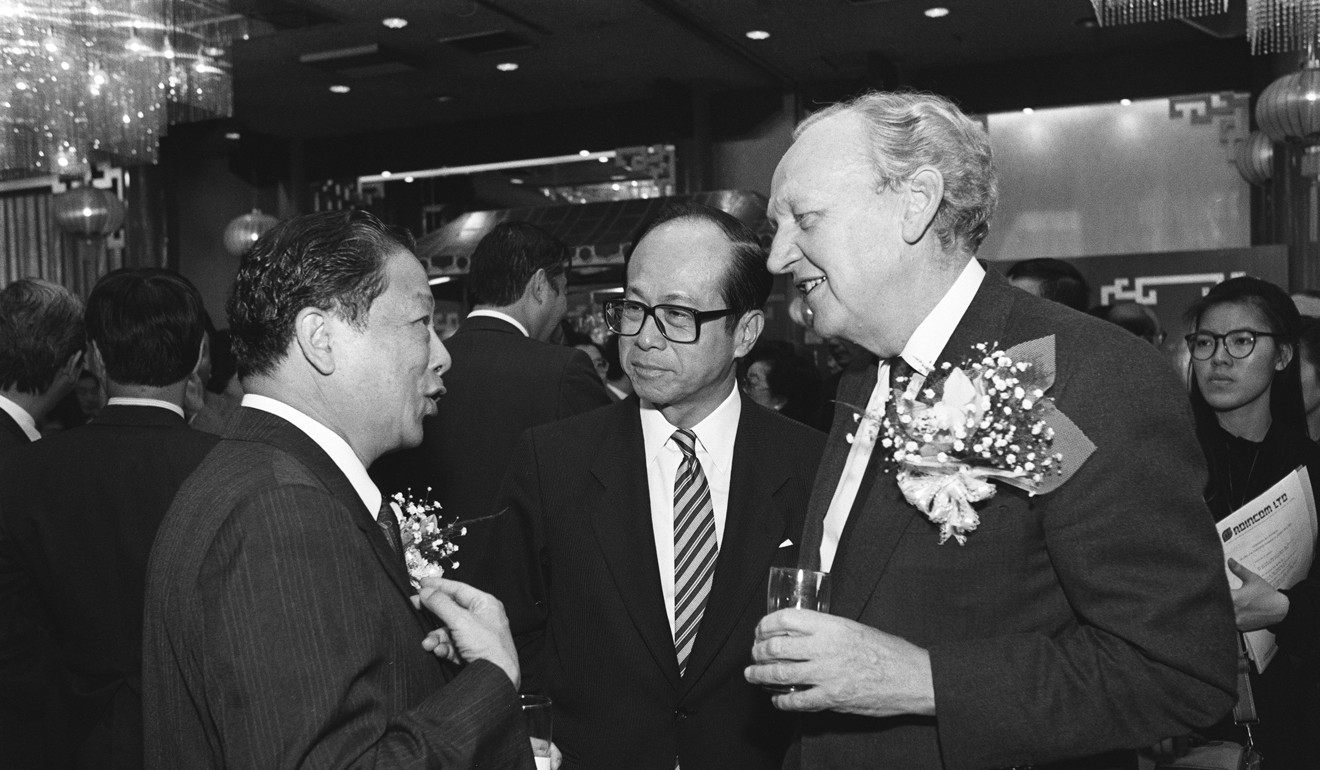
To critics, that stance was one of hypocrisy. Just a few years earlier Ford had attacked calls for faster democratisation, preaching the “gospel of caution” when it came to direct elections.
Shortly before his departure from the government, he described criticism that still abounds today of the legislature’s functional constituencies, the largely trade-based seats in the chamber returned by small electorates.
A David Ford attests to new life
There had been considerable discontent, he said, with the way “the functional constituencies were too narrowly based”. The nature of the seats – which still constitute half of Legco today – was “an unusual notion and one which is not easy to make credible”, he said.
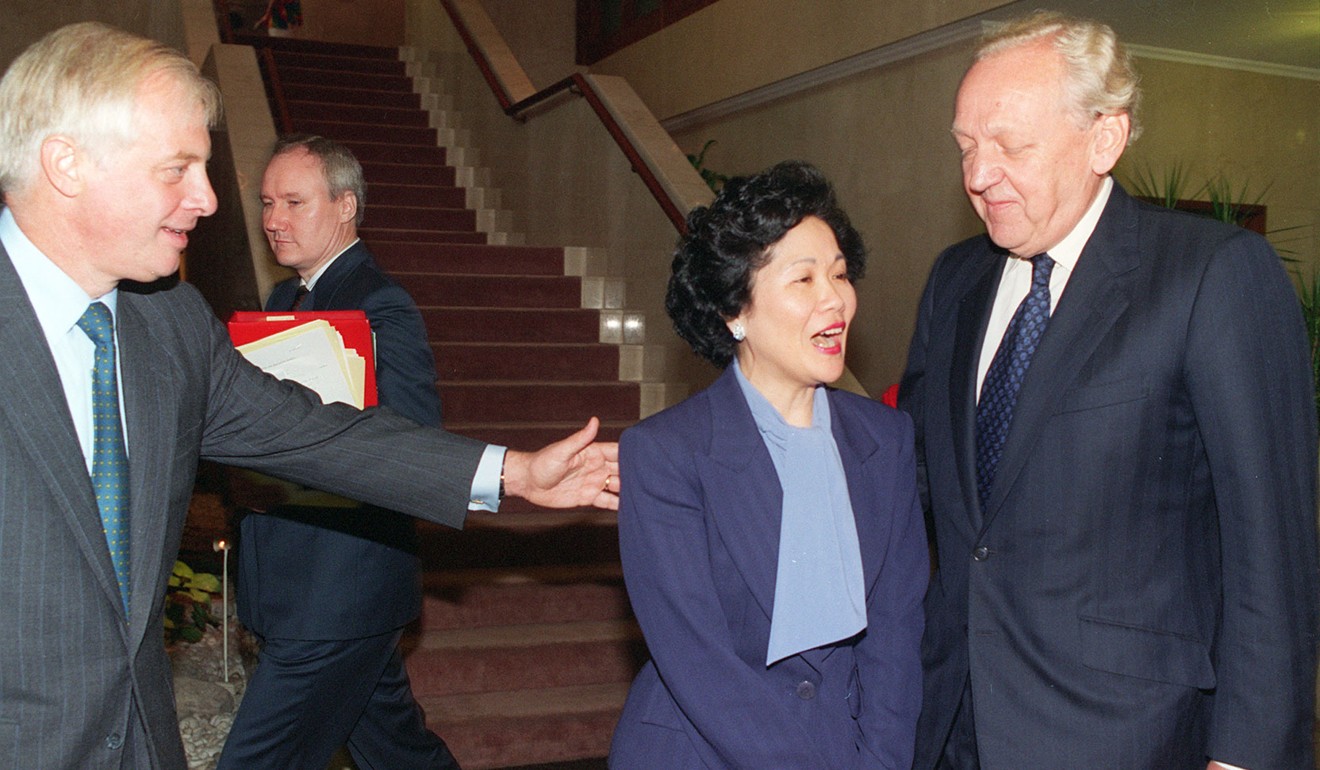
Hong Kong’s last colonial governor, Chris Patten, extended his condolences to Ford’s family.
“He was a good and kind man who served Hong Kong with great distinction. He loved the city and played a central role in its modern development, not least in the initial decisions on building the airport. Much of the best that has happened in Hong Kong stands as a lasting tribute to him and the civil service that he led with such professionalism and integrity,” Patten said.
Hong Kong’s current leader, Carrie Lam Cheng Yuet-ngor, expressed sorrow.
“Sir David served in the Hong Kong government for a long period of time before the establishment of the Hong Kong special administrative region. In particular, as chief secretary, he led the civil service to serve the community with the utmost dedication and made significant contributions,” Lam said.

Regina Ip Lau Suk-yee, a member of the Executive Council that advises Hong Kong’s leader on policy, worked under Ford from 1990 to 1992 as deputy director of administration. She said he competently supported two colonial governors, David Wilson and Patten, in the former’s efforts to make the airport a reality and stem the outflow of talent from the city and the latter’s push to improve efficiency in the judiciary.
“He joined the government rather late in his career and was not close to many local administrative officers, like his predecessors,” Ip said. “He didn’t speak Cantonese and was somewhat colonial and aloof in style.”
David Ford farewell
David Akers-Jones, another former chief secretary who also acted as governor in late 1986 and early 1987, said Ford had an “active, versatile mind and a lively sense of humour”.
The pair had been close friends, he said, when Ford was seconded to the Information Services Department to help counteract a bloody anti-establishment riot by leftists in 1967 that left 51 people dead. Later their views on politics diverged, Akers-Jones said, and they went different ways.
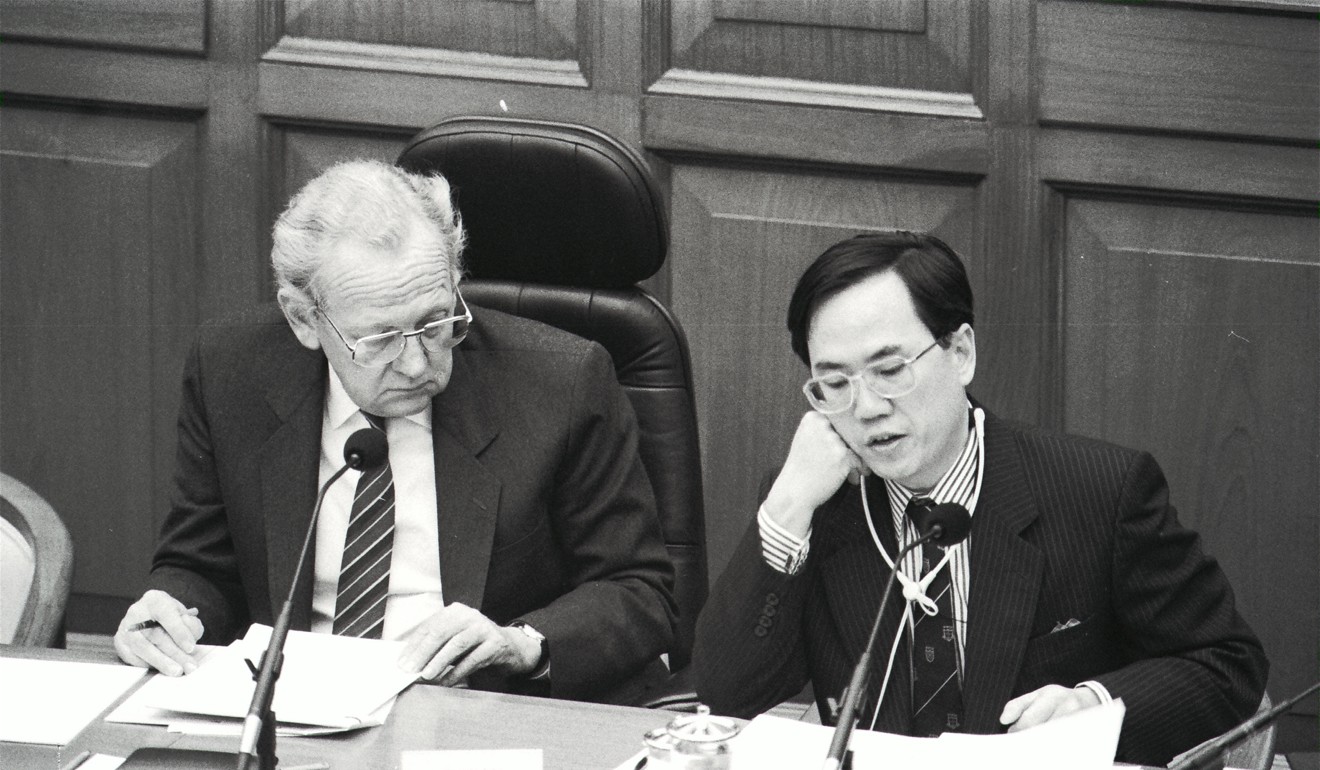
Margaret Ng Ngoi-yee – a lawmaker from 1995 to 2012 and one of the government’s fiercest critics of the time – showered Ford with praise.
“He held among his colleagues the most progressive views about democratisation,” Ng said. “He was more than tolerant of the idea. He was enthusiastic and totally comfortable with it.”
Ford was known for at times employing the unabashed language of Westminster in Legco. In 1987 he lashed back at two lawmakers, who suggested Britain was being unnecessarily friendly to Beijing, with a classically provocative phrase.
“Those who continue [in] the misguided belief that they are dealing with a lame duck will discover they have a tiger by the tail. And not a paper tiger either,” he told Martin Lee Chu-ming, who would go on to found the Democratic Party.
Ford was born on February 22, 1935, the son of William and Edna Ford. He had four children with his first wife, Elspeth Muckart, before later marrying Gillian Peterson in 1987.
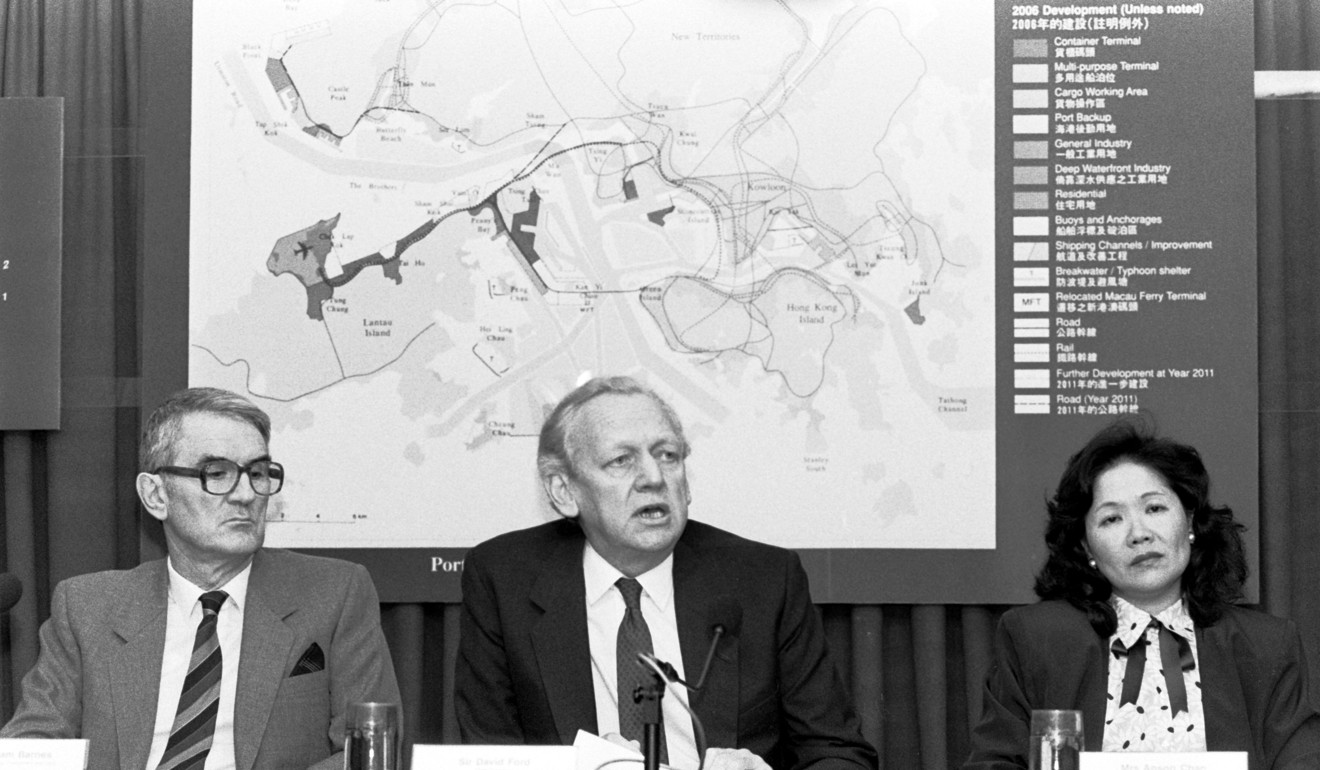
Ford was not the typical colonial officer from the ranks of Oxford or Cambridge universities. Educated at Taunton School in southwest England, he joined the British army at 20 and stayed more than 15 years, during which he was posted across continents, to Malta, Yemen, Pakistan and Borneo, among 17 outposts in total.
He was seconded to the Hong Kong government in 1967. Rising through the ranks to reach the top of the Information Services Department by 1974, he earned direct experience there in propaganda warfare with communists in Hong Kong. Between 1977 and 1979 he was moved back to Britain as an undersecretary at the Northern Ireland Office. His unspecified duties there coincided with the Irish Republican Army’s resurgent campaign of terrorist violence in a period known as The Troubles. That portfolio led pro-China newspapers in Hong Kong to suspect he was an MI6 agent.

From 1980 to 1983 he took another break from Hong Kong, studying at the Royal College of Defence Studies and working as Hong Kong commissioner in London, a post he would take on for a second time after he stepped down as chief secretary in 1993.
When Britain’s role in Hong Kong came to an end in 1997, he found himself liberated from public service, and focused on breeding rare cattle and sheep in Devon, southwest England. It wasn’t long though before he returned to Hong Kong, joining telecommunications firm PCCW as a non-executive director in 2002. Given his background, his trips to post-handover Hong Kong were followed with intense interest by the pro-China media, with suspicion mounting that he might be strategising with opposition pan-democrat lawmakers and “meddling” in the city’s affairs.


